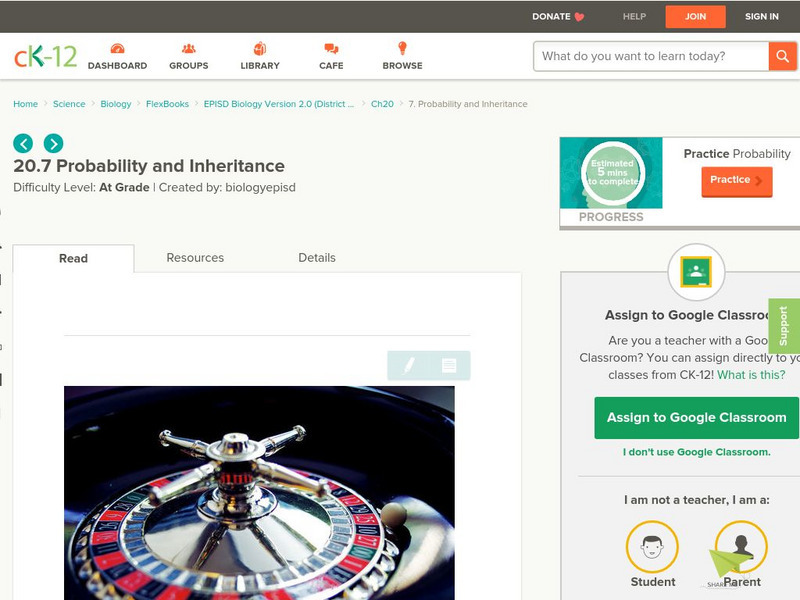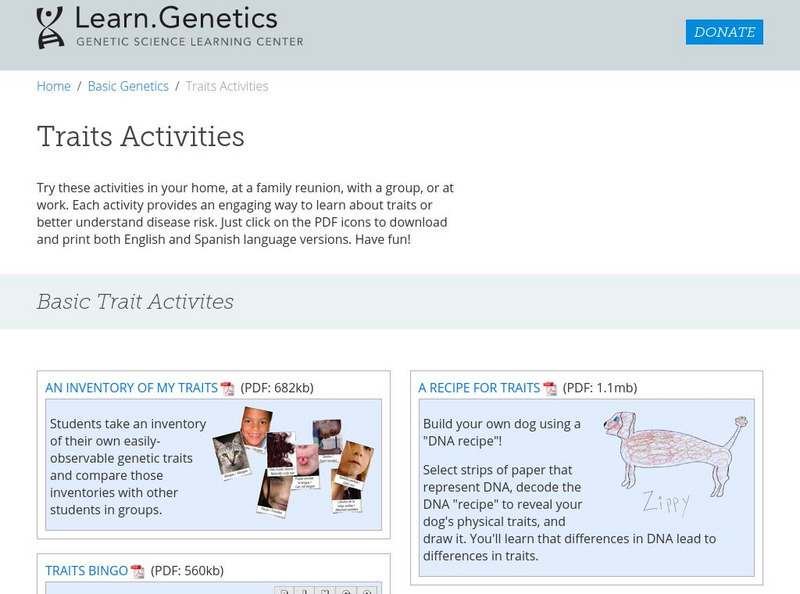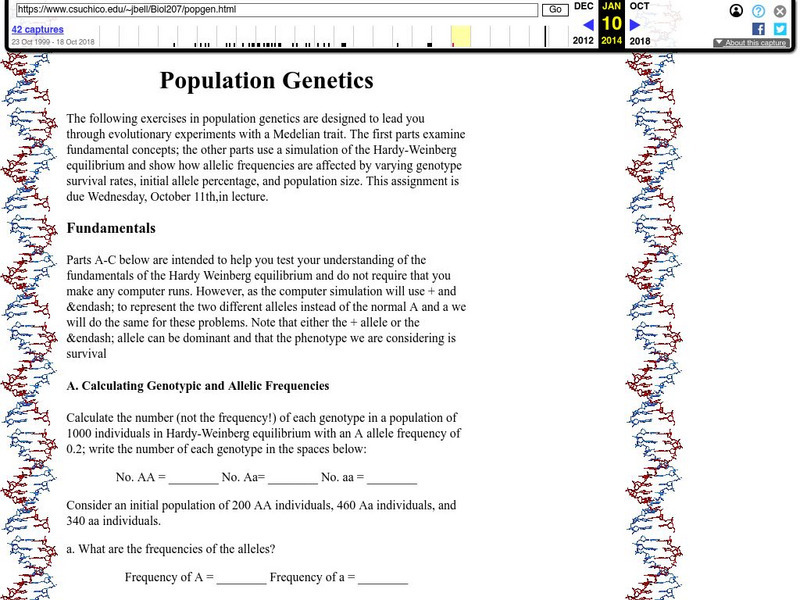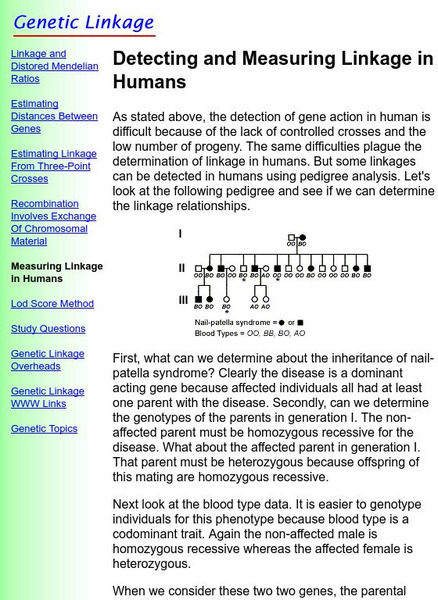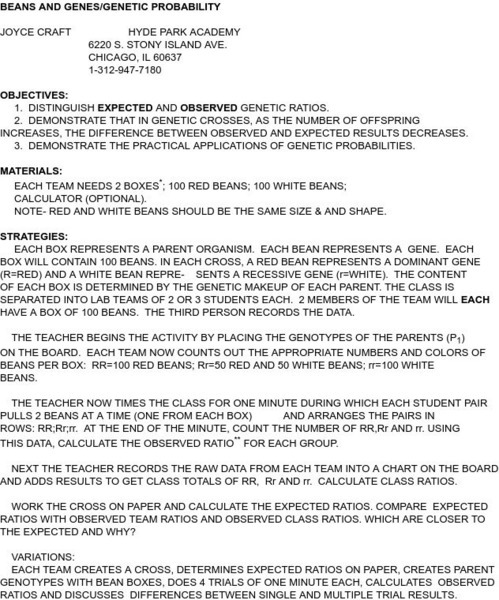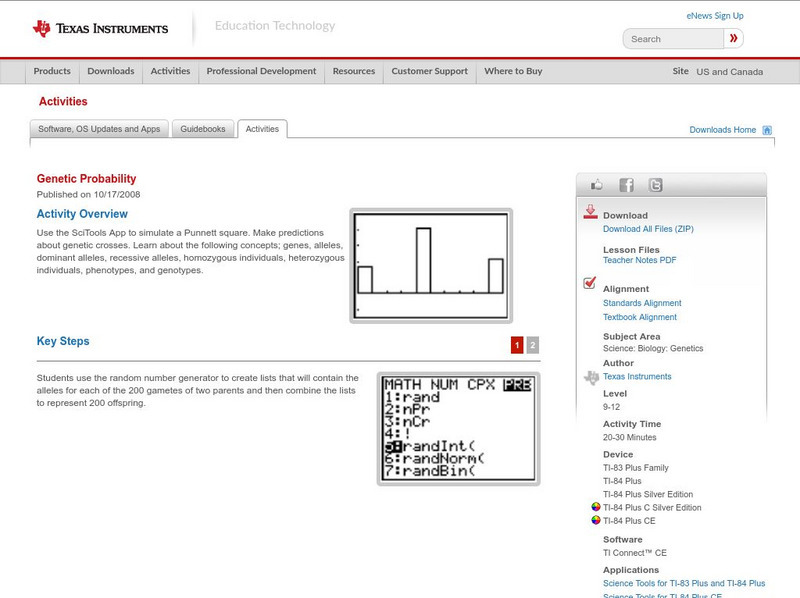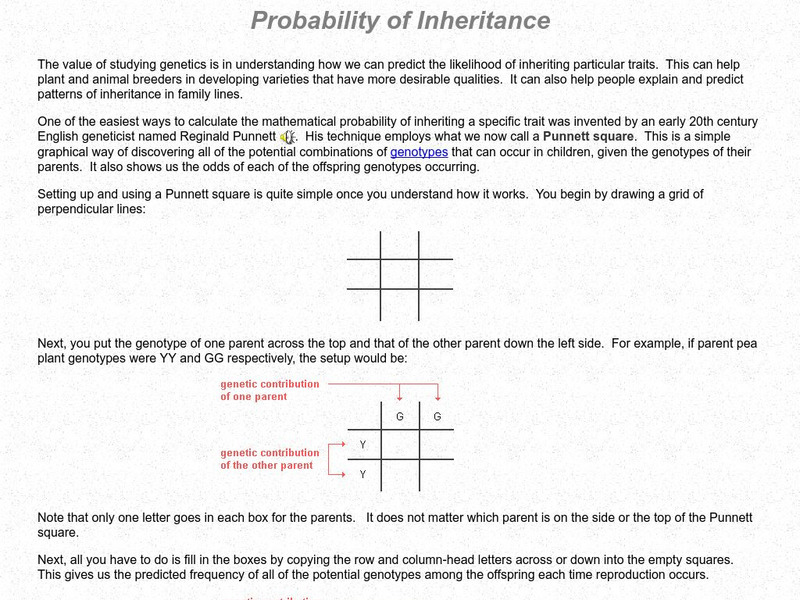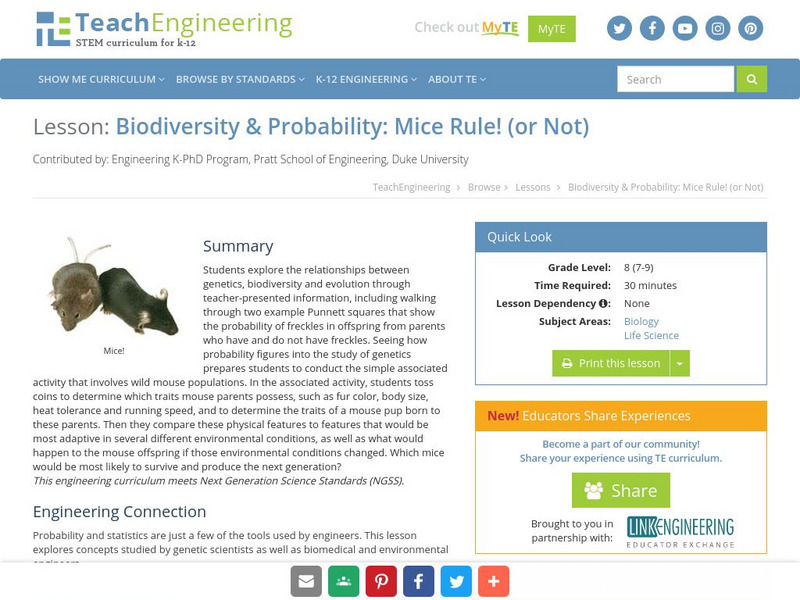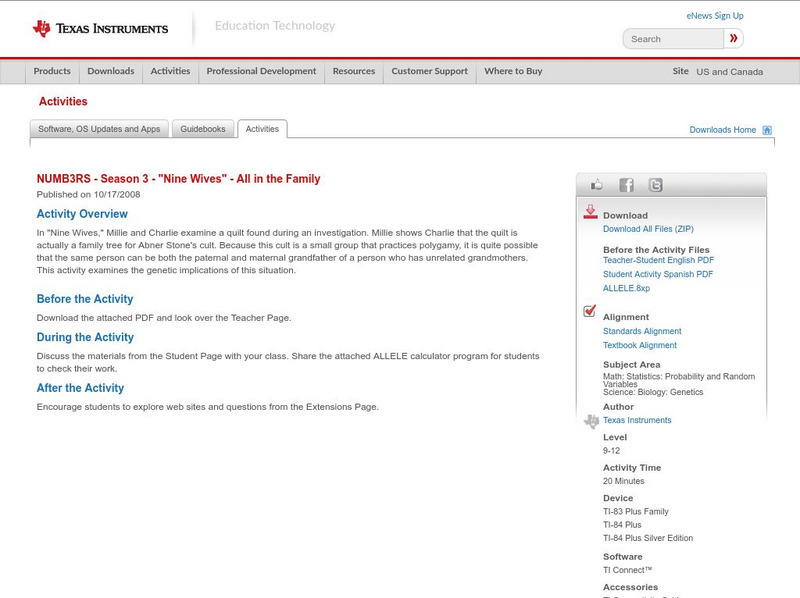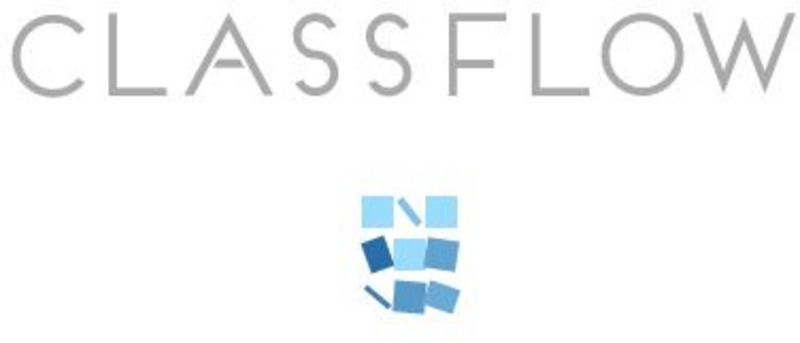Hi, what do you want to do?
Curated OER
Intermediate Sentence Completion Exercise 35
In this intermediate sentence completion exercise 35 worksheet, middle schoolers working online, choose the correct word(s) to complete the sentence, with immediate feedback.
Curated OER
Case of the Threespine Stickleback
Students examine why some freshwater populations of stickleback fish. In this macroevolution lesson students read a study packet then answer questions.
CK-12 Foundation
Ck 12: Episd: Probability and Inheritance
[Free Registration/Login may be required to access all resource tools.] While studying genetics explore the Law of Probability. How does probability relate to the formation of gametes? Find out!
Khan Academy
Khan Academy: Probabilities in Genetics
Article reviews some probability basics then investigates how these calculations can be applied to genetics problems involving relatively large numbers of genes. Explores how the sum rule and the product rule can be used to solve these...
CK-12 Foundation
Ck 12: Biology: Probability and Inheritance
[Free Registration/Login may be required to access all resource tools.] Discusses the role of probability in inheritance.
University of Utah
University of Utah: Genetic Science Learning Center: Traits Activities
A collection of genetic learning activities provides an engaging way to learn about traits, or better understand disease risk.
Estrella Mountain Community College
Estrella Mountian College: Introduction to Genetics
This site explains genetic beliefs before and after Mendel, and also includes a section on Mendel himself and his experiments, entitled, "The Monk and his Peas".
University of Hamburg
University of Hamburg: Deviations From Mendelian Laws And: What Is the Meaning of Dominance?
Upper level discussion of several of Mendel's experiments and laws.
California State University
Csu Chico: Population Genetics
This is a group of Mendelian Genetics exercises that are designed to show the evolution of a trait within a population. The site covers instruction in calculating genotypic and allelic frequencies, determining dominance, the...
Washington State University
Washington State University: Learning Mendelian Genetics
A decent lab activity which could be used to introduce the concept of dominance and autosomal dominance. This site provides a coin toss activity to learn about Mendelian Genetics.
PBS
Pbs Learning Media: Mendel's Laws of Genetic Inheritance
This interactive activity, adapted from the Dolan DNA Learning Center, uses Punnett squares to illustrate Mendel's laws of inheritance and how a particular gene combination results in a 3-to-1 ratio of dominant-to-recessive traits.
National Health Museum
Access Excellence: Genetics the Easy Way
A great activity that deals with genetic probability and recycling. Young scholars will create a recycled "critter" based on genotype/phenotypes.
Other
Lawrence Livermore National Lab: Probabilities of Traits
This site explains how to determine the chances of inheriting certain traits from our parents. It gives mathematical examples and exercises.
Other
North Dakota State Univ.: Detecting and Measuring Linkage
A good site to establish what is meant by gene linkage and sex-linkage.
Science and Mathematics Initiative for Learning Enhancement (SMILE)
Smile: Beans and Genes/genetic Probability
This lesson was put on by Joyce Craft from Hyde Park Academy in Chicago. This is used to help demonstrate applications in genetic probability.
Texas Instruments
Texas Instruments: Genetic Probably
Activity Overview Use the SciTools App to simulate a Punnett square. Make predictions about genetic crosses. Learn about the following concepts; genes, alleles, dominant alleles, recessive alleles, homozygous individuals, heterozygous...
Palomar Community College District
Probability of Inheritance
A great supplement to help introduce Punnett Squares. It tells how to set them up and how to use them correctly. A sample quiz is offered and feedback is given to help with understanding why an answer is correct or not.
Concord Consortium
Biologica: Web Lab, Mendel's Peas
At this site see an online visual of meiosis, fertilization, and inheritance and play a game.
TeachEngineering
Teach Engineering: Mice Rule! (Or Not)
Students explore the relationships between genetics, biodiversity, and evolution through a simple activity involving hypothetical wild mouse populations. First, students toss coins to determine what traits a set of mouse parents...
Other
Your Doctor: Sickle Cell Anemia (In Arabic)
Photos of slides and genetics charts accompany the text and explain the differences between sickle cell train vs. sickle cell anemia, symptoms of sickle cell disease, secondary diseases/conditions associated with sickle cell, mechanism...
Texas Instruments
Texas Instruments: Numb3 Rs: All in the Family
Based off of the hit television show NUMB3RS, this lesson shows students the scientific reasoning behind the societal taboo of incest. Students complete a Punnett square to determine the chances of an offspring inheriting two recessive...
ClassFlow
Class Flow: Natural Selection and Heredity
[Free Registration/Login Required] Students engage in the concept of natural selection and further their understanding of diversity and relatedness within the living world. Inquiries into evolution explain the ways in which natural...
Science Buddies
Science Buddies: Pedigree Analysis: A Family Tree of Traits
Some characteristics, like the shape of your hairline, whether your earlobes are attached or detached, and whether or not you have freckles are inherited from your parents. In this science project you will learn about Mendelian traits,...
Alabama Learning Exchange
Alex: Can You Curl Your Tongue?
This lesson is adapted from a Connected Mathematics Unit, How Likely is It? This investigation introduces biology as a source of applications for probability. In this lesson, Curling your Tongue, students determine how many students in...







